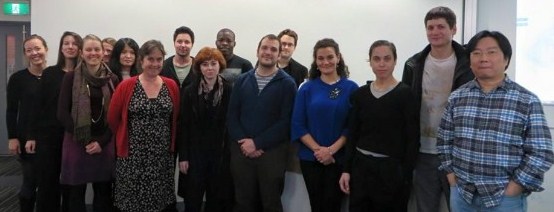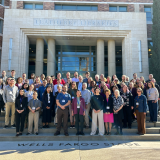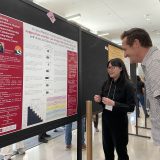Mapping in Melbourne
September 8, 2015
In the first weeks of fall semester, the campus is abuzz with talk about what everyone did during the summer, how it sped by, and what adventures they had. For me, the most memorable part of this summer was experiencing winter in July for the first time in my life.
I had the privilege of being invited to the University of Melbourne in Australia to teach a short course on
Geographic Information Systems (GIS)
. Hosted by the university, the class drew 21 attendees from a range of fields– from Ph.D. students in the social sciences and business, to local non-profit organization leaders, to a faculty member who flew in from the University of Queensland in Brisbane.
Over two days, I introduced students to a software that provides powerful spatial analytic tools, allowing us to map data in order to understand patterns and relationships. In today’s data visualization-obsessed world, we are used to seeing (seemingly) simple maps– have you seen
this
great one?– but we don’t necessarily think about what it takes to produce one.
Have you ever wondered how to display a three-dimensional earth on a two-dimensional surface? Or how to make spreadsheet data into a map? Or what type of map would best visualize a particular attribute? These are just a taste of the kinds of issues one must understand before creating a map. So it’s no wonder that employees with GIS skills are in demand in both public and private sector, throughout a variety of industries.
I think the students’ favorite part was finding out what the OC
census tract 9800
is. Mine was the curiosity and enthusiasm that filled the room. And of course, Melbourne’s
famous coffee
was a perk.
Summer break is an opportunity to give our creative minds a chance to just wander. To give them the time and space to come up with new ideas. I am grateful that this summer, thanks to the University of Melbourne, I was able to do just that, and even more– I got to see snow in July!

GIS Workshop led by Chapman professor, Georgiana Bostean, Ph.D. (fourth from right), at University of Melbourne
“Geographers never get lost. They just do accidental field work.” ~Nicholas Chrisman


